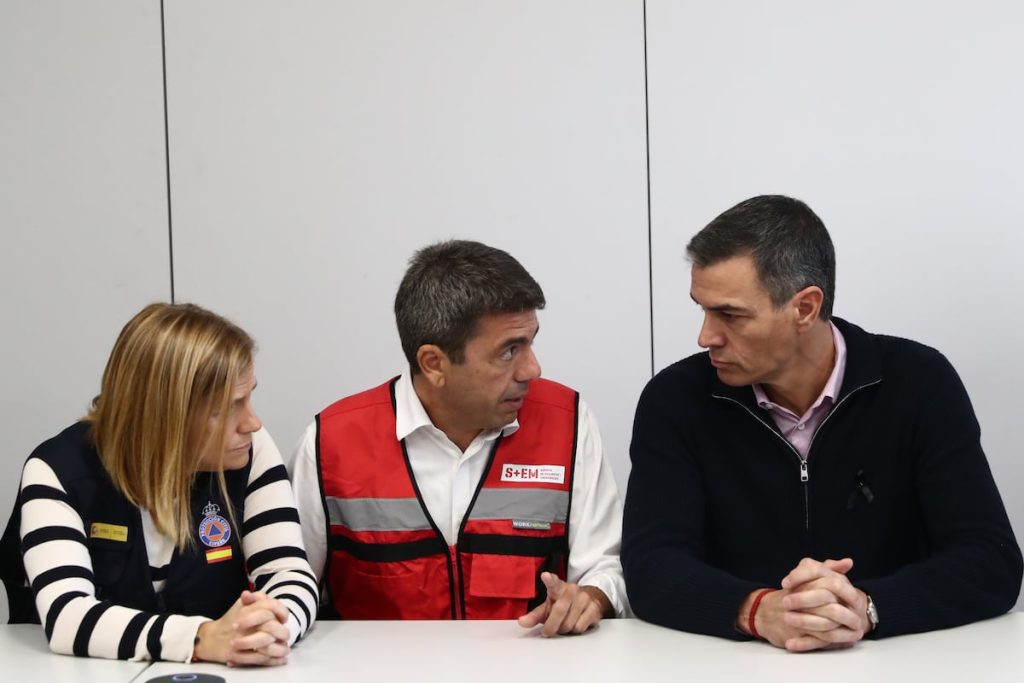The Government Delegate, Pilar Bernabé, contacted the Justice Counselor and Emergency Response political leader, Salomé Pradas, three times on the morning of October 29, when the devastating storm broke out. Despite warning the counselor about the rising Magro River in Utiel and the forecasted heavy storms, it wasn’t until later that the Generalitat requested the intervention of the Emergency Military Unit (UME). Bernabé made it clear to the council that they could request any necessary resources for the situation. Prior to this, Bernabé had already held a meeting with some of the Emergency response team members, including the UME, to monitor the situation and be ready to react. She also spoke with several mayors of at-risk towns via video conference around 9:30 am.
After receiving a warning from the Júcar Hydrographic Confederation about the risk of the Magro and Poyo ravines overflowing around noon, Bernabé called Salomé to discuss the situation and offer resources. The counselor mentioned that they were still in contact and would be convening the Emergency team at the l’Eliana headquarters. As the situation worsened, at 12:48 pm, the delegate contacted the counselor again. Salomé informed her that she was heading to Carlet due to the potential overflow of the Magro River. By 2 pm, despite a third call from the delegate, the Generalitat had not requested any resources. Shortly after, Salomé Pradas requested the activation of the UME for the municipality of Utiel, following a fourth phone conversation.
The Mayor of Paiporta, Maria Isabel Albalat, personally contacted the Government Delegate to alert her about the flooding in her town, expressing her concern that many people would die due to the lack of preparedness for such a disaster. She stated that they began to receive alerts from Civil Protection around 8-8:15 pm, but by then, they were already overwhelmed by the water. Albalat was not present at the morning meeting between the mayors of towns threatened by the storm, the Government Delegation, UME, Civil Guard, Civil Protection, and road authorities, indicating that she was not informed about the situation in her town.
The response to the emergency caused by the DANA storm in the Valencian Community raised concerns about the communication and coordination between the Government Delegation and the Generalitat. The delay in requesting the intervention of specialized units such as the UME led to criticism from affected local authorities and the public. The need for improved communication protocols and more effective emergency response strategies was highlighted in the aftermath of the devastating storm. The testimonies from local leaders shed light on the challenges faced during the emergency and the importance of timely and coordinated actions to mitigate the impact of natural disasters.
The situation in Paiporta highlighted the urgency of the emergency response and the importance of swift and effective coordination between local, regional, and national authorities during such crises. The lack of advanced warning and preparation in the face of extreme weather events like DANA can result in significant loss of life and damage to infrastructure. The experiences of local leaders like Maria Isabel Albalat underscore the critical role of proactive communication and decisive action in safeguarding communities and mitigating the impact of natural disasters. The lessons learned from the DANA storm underscore the need for improved emergency preparedness and response mechanisms to ensure a more coordinated and effective approach to future emergencies.


